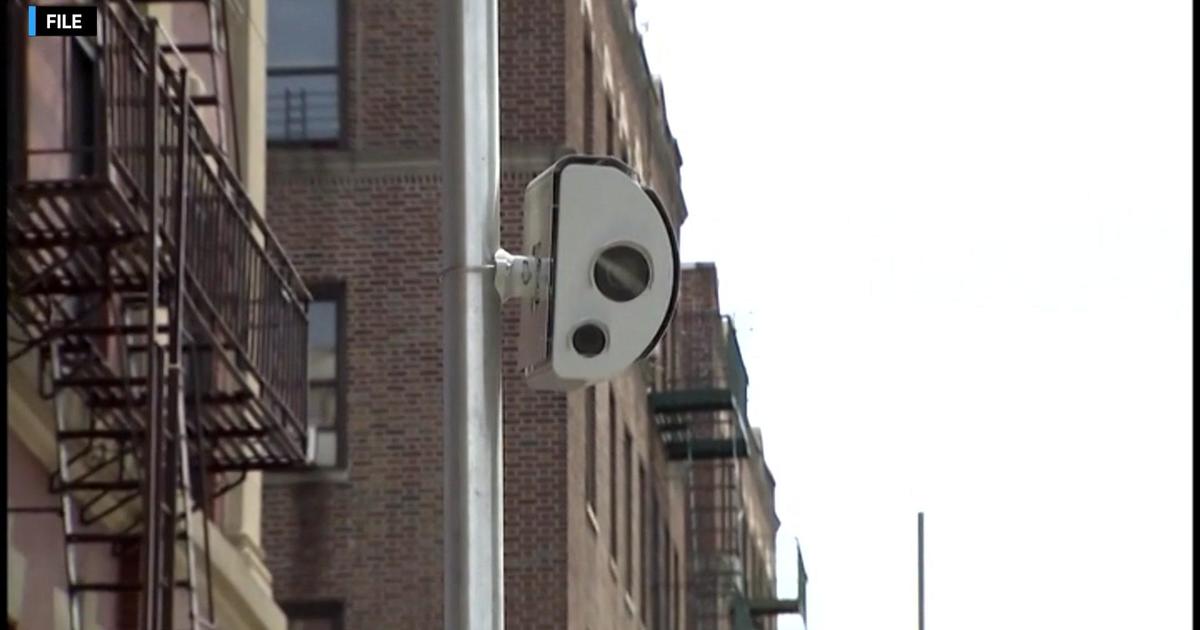City Council Speaker Melissa Mark-Viverito Reveals She Has 'High Risk HPV'
NEW YORK (CBSNewYork) -- New York City Council Speaker Melissa Mark-Viverito has revealed that she has a "high risk" form of the human papillomavirus, also known as HPV.
Mark-Viverito, 45, made the announcement Sunday on Twitter.
City Council Speaker Melissa Mark-Viverito Reveals She Has 'High Risk HPV'
HPV is a common sexually transmitted disease that in some cases can cause cancer, 1010 WINS' Glenn Schuck reported.
"To say I'm not wee bit worried = lie," Mark-Viverito tweeted. "'High risk HPV' can POTENTIALLY but NOT definitively lead to cervical #cancer."
Mark-Viverito said she got the results of a recent gynecological exam on Friday and will undergo a biopsy.
Mayor De Blasio Has 'Great Respect' For Council Speaker
She explained that it had been two years since her previous gynecological exam and hopes that coming forward with her diagnosis will encourage others to get regular exams.
"Yes, I'm an extremely private person. But this position has led me to understand I now have a bigger responsibility," Mark-Viverito tweeted.
Mark-Viverito posted the tweets from Puerto Rico where she is on a weeklong vacation, Schuck reported.
Public Advocate Letitia James was one of several elected officials who praised the speaker for raising awareness and going public with something so private, CBS 2's Andrea Grymes reported.
"She has basically saved the lives of a countless number of women," James said.
Mayor Bill de Blasio praised Mark-Viverito for making public a very personal health matter.
"She did something very brave," de Blasio said Monday. "I before this weekend had great respect for Melissa Mark-Viverito, my respect is even greater today."
Councilman Juumane Williams added his own thoughts.
"My first thought process when I saw that, was it too much information? But that might be the direction we need to go in if we really want to see the change we want to see," Williams said.
New Yorkers offered mixed reactions to the announcement.
"I'm proud of her and I wish her luck," one woman said.
"Too much information, definitely," a man said.
Mark-Viverito's announcement comes as a new study finds a vaccine against HPV remains effective longer than originally thought.
HPV is so common that most sexually active men and women will get at least one type of the virus at some point, according to the CDC. In most cases HPV goes away on its own.
Previous research suggested the vaccine lasted about four years, but the new study from Georgia Regents University finds children were still protected from HPV eight years after being vaccinated, CBS 2 reported.
The CDC recommends all children ages 11 and 12 be vaccinated for HPV. The vaccine has been shown to prevent infection if it is given before a person is exposed to the virus.
Understanding HPV
The councilwoman's revelation has many people asking about HPV.
As CBS 2's Dr. Max Gomez explained, Human Papilloma Virus is by far the most common sexually transmitted infection in the country.
It is so common that, according to the CDC, nearly all sexually active adults will get it at some point in their lives. The vast majority of those cases go away on their own and will not cause any health problems.
There are about 100 strains of HPV that have been identified. Some strains cause genital warts, but at least two of them can cause genital and oral cancers in men and women. They most commonly cause cervical cancer, sometimes decades after the initial infection.
Not everyone who has those strains will develop cancer or warts, Dr. Gomez explained. However, there are higher risk strains that will likely lead to cancer, that is where pap smears come in. Pap smears look for pre-cancerous changes in the cells of the cervix. If those cells are highly abnormal then a biopsy, such as the one the councilwoman is having, might be called for to make a definitive diagnosis.
The HPV vaccine has been shown to prevent HPV infection if it is given before a person is exposed to the virus. That is why gardasil and cervarix are recommended for boys and girls at age 11 or 12, before they become sexually active.
The vaccine is not 100-percent protective because there are other strains of cancer causing HPV that are not in the vaccine, and the vaccine is not helpful after you have been infected.
You May Also Be Interested In These Stories:



